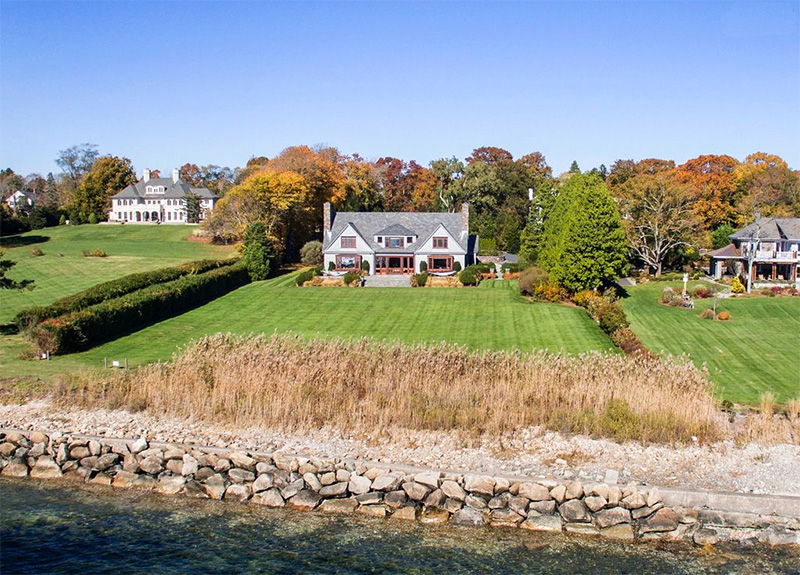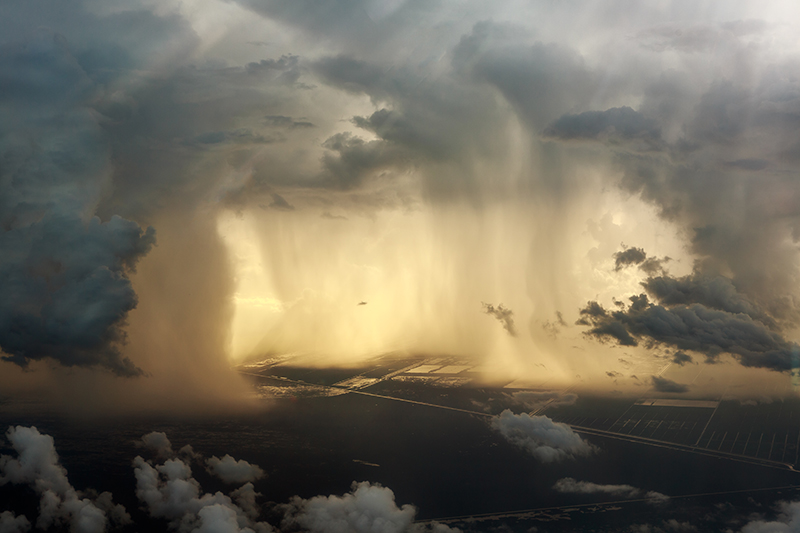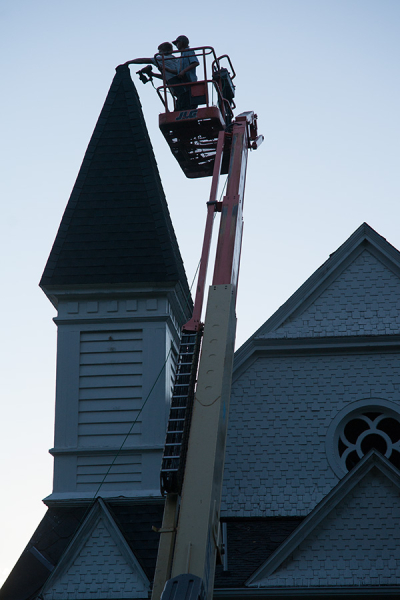[Editor's Note: Oops! Egg on face...
You'd think after 11 years I'd know how to work the simple blog software, but I observe my aging brain working a little less well these days where details are concerned. Yesterday I meant to simply save, but mistakenly posted, what Wikipedia calls a "stub"—a little scrap of the first draft of this post.
I scribble such stubs all the time when an idea occurs to me—just whack out a few sentences to remind myself of the idea and to start sketching out the skeleton of a possible post-to-be. It might or might not make its way to the blog. This one probably would never have seen the light of day—it was just a reaction to reading an article in the paper—but yesterday's little burp wasn't meant for publication in truncated form in any case.
But now, damage done, enough comments have come in that, rather than delete the post and consign all the commenters and their thoughts to limbo, I've decided to clean up and complete the post and let it stand.
A SNAFU, however, no doubt.
Sorry! And thanks to Gordon for alerting me to what I had done.
—Mike the often but not always competent Ed.]
-
One of the immediate concerns about climate change is pretty specific: land and housing values in areas affected by sea level rise.
There are still a lot of people with their heads in the sand, and a number of Congressmen with their heads way up where the sun never shines. (How do they walk like that?) Denial (and mendacity) aside, nobody will want to lose a bundle of money when they don't have to. And there will come a time when coastal property will start dropping in value, as more and more people start to get skittish about investing in property that could be increasingly affected by flooding or permanent inundation.
Tipping point
At some unknown time it's likely that there will come a tipping point. Before that point, enough people will still be blithely business-as-usual that property values won't be greatly affected. After the tipping point, nobody will touch coastal property with a ten-foot depth-sounding stick. This is very much the kind of thing that's usually affected by "herd mentality": peoples' actions will be greatly affected by other peoples' actions. It's likely to change all in a rush..."overnight" as the saying goes, meaning, quicker than anyone expects.
In other words, coastal and low-lying real estate is going to crash.
It's very easy to predict a time in the tragically near future when no one in their right minds will buy a piece of property that isn't ten feet or more above sea level. Or even twenty—risk and FUD (fear, uncertainty, and doubt) is viral and essentially irrational, so the evolution of attitudes are as impossible to predict as the rate of sea level rise. But where the market is concerned, it's risk and FUD, not science and logic, that will determine whatever the coming "new normal" will be.

Real estate photo of a beautiful $4 million mansion in Rhode Island.
When might prospective buyers begin to feel that this is just
a little too close for comfort to sea level?
As is often the case with economic issues, there are individual (micro) effects and society-wide (macro) effects. For individuals, the trick will be to get out while the getting is still good, i.e., before one's individual property values are adversely effected and mortgages start to turn turtle. I know a couple (the woman is a high-level scientist) who have already planned their future exit from their low-lying coastal community. Society-wide, the problem is that, as The Economist put it in an editorial in its August 20–26th issue, "America's housing market...is the world's largest asset class, worth $26 trillion, more than America's stock market. The slab of mortgage debt lurking beneath it is the planet's biggest concentration of financial risk."
The water's edge creates value
And how much of of that "asset class" is created by proximity to water? Adjacency to water adds a lot of value to property. In my own neighborhood I just watched a vivid example go by (although we live near a lake, not the ocean—still, it illustrates the point). I live in a small but nicely restored and updated 1880 farmhouse on more than 1.75 acres of beautiful, protected back yard, about a football field from lakeside. It's about as much as I can afford but by First World standards it's very inexpensive compared to most desirable places to live. Meanwhile, just down the road not more than a quarter of a mile, an old, un-restored mobile home in so-so condition on a tiny postage stamp of land wedged between the road and the lake just sold for 150% of what my place is worth. Put my place on the lake and it would be worth three times as much (and I wouldn't be living here, because I couldn't afford it); put that trifling trailer a block from the lake and it would be worth well south of a hundred grand, not well north of three hundred. The water's edge creates value—value that can go up in smoke when what used to be prized suddenly becomes something to stay away from. The possible effects of a waterfront property crash on the general economy are unknown, but also scary.
I'm certainly not insensible to the delights of living on the water. I love it myself (although as I say, I'm not living by the water now). I can see why anyone would want to, and I don't blame anyone for doing so. And obviously anyone modestly above sea level is all right for now.
Sorry to say so out loud, though, but the emphasis might be on "for now." The question is twofold: when will sea level rise start to be a real problem, coupled with, when will the tipping point in prevailing attitudes about low-lying real estate occur? There's no way to know. But the handwriting, to twist an old saying, is coming in with the tide.
Mike
Original contents copyright 2016 by Michael C. Johnston and/or the bylined author. All Rights Reserved. Links in this post may be to our affiliates; sales through affiliate links may benefit this site.
Like what you read?
Join our support campaign or buy something
(To see all the comments, click on the "Comments" link below.)
Featured Comments from:
Saethor: "My husband and I just bought a nice three-acre plot in Virginia to build a getaway home near my parents (our normal home is Iceland). Originally I wanted something on the ocean side. Virginia's beaches are so beautiful, especially the peninsula. But then we remembered the sea level rise, and even a 1 meter rise is going to dramatically change the Virginia coastline. We ended up getting a nice plot in the Shenandoah Valley, with a gorgeous view, at about 300 meters above sea level. That should be enough. :-)
"The view will make for stellar photographs too."
Dogman: "Fact is there are numerous places on Earth that people should not be living but they live there anyway. Have you read The Control of Nature by John McPhee? It's been over 25 years since I last read it but it drove two messages home for me. One, humans are resourceful and stubborn and often very lucky. Two, we still aren't as smart as we think we are."
Brian in Alberta: "There is also an expected land rush in some other parts of the world that are forecast to be less impacted by climate change—central Alberta for example!"
Miserere: "Quite right, Mike. And 10 feet? I wouldn't buy anything that's not 100 feet above sea level, ensuring that my neighbourhood and main roads in the local area aren't below 30 feet. There's no point having your house above the waterline if the rest of your neighbourhood is below it. Unless you've always wanted a private island. Now there's an idea....
"But I agree with you that the realisation will come quickly, and when it's too late, many homeowners will be extremely angry at the government for letting this happen and will demand the government buy their houses at full price so they can move elsewhere. It's not like they hadn't been warned for over a decade."
Mike replies: I observed this when the Fox River flooded on Spring in Waukesha, which was of course only temporary. But the swollen river cut the town in two, and people were not able to get from one side to the other (one man died, and many cars stalled, trying). Interestingly, many of the fire stations were zoned such that emergency vehicles couldn't get to the areas they were supposed to serve, so, after the flood, the town redrew the maps so that all the emergency stations would serve areas on one side of the river or the other, and could still get to where they needed to be during a flood. It was a microcosm of what will become commonplace in the next decades or centuries. So you can't just think of your home, but of routes to your home and of community resources nearby as well.
Bringing the discussion back to the photographic sphere, I was a visitor at Sally and Larry Mann's cabin on the Maury River and noticed a tide-line of scrubbed-off mud halfway up the inside walls of the cabin. Turns out their "flood control" is to open both ends of the cabin and let the river flow through it when the water is high! Obviously they kept few possessions in the cabin, and those were stored high up. But by letting the water flow through, they prevent the structure from being swept away. As Dogman noted, humans are resourceful.
Tommy: "Just a couple of points: 1. Never accept what a politician tells you about science. They do not understand science. They do, however, understand political agendas. 2. Almost any sufficiently complex dynamic system is chaotic. A chaotic system is deterministic, but is extremely sensitive to very small changes in initial conditions. This is why it is impossible to predict the weather ten days from now. Climate is not only chaotic, but not all of the factors that determine future climate are known.
"By the way, my experience with waterfront property is the same as yours. I live on about an acre of land across the street from a lake in Texas. The guy on the water across from me paid five times as much for one quarter as much land as I own."




















